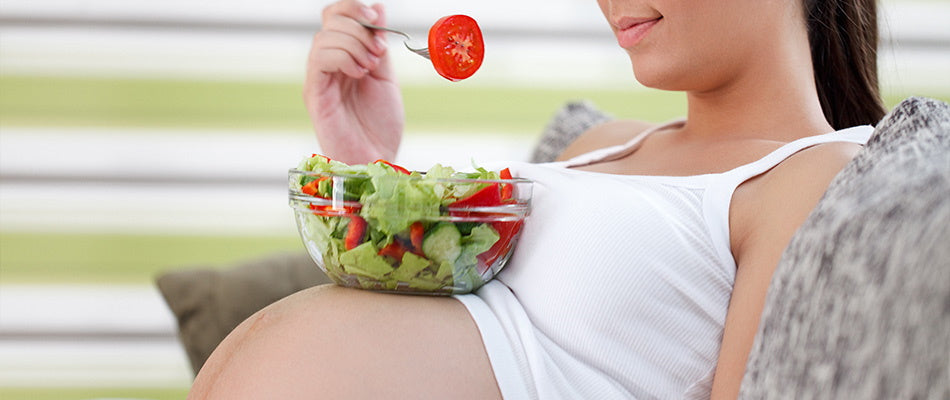Here’s why you should take vitamins during your pregnancy
Everyone should make sure they eat healthy foods rich in vitamins. A healthy lifestyle becomes particularly important during pregnancy, as you are now responsible for another small being. For your baby to develop healthily, it’s important to provide them with all the vitamins and nutrients they need.
What vitamins are important during pregnancy?
So that you don't lose track of which vitamins you should take during your pregnancy, we have put together an overview for you.
- Folic acid: To support the development of the nervous system, you should take folic acid. More specifically, it contributes to the healthy formation of the embryonic neural ear. This is the tissue structure from which your child's central nervous system will later develop. It forms in the first few weeks - when you may not yet know anything about your pregnancy. It’s therefore advisable to start taking folic acid as soon as you have decided to have a child. You can fill your folic acid stores with spinach, soybeans or whole grain products.
- Vitamin A: Vitamin A supports, for example, the development processes of the skin, eyes, lungs and immune system. As a rule, however, the vitamin A stores of pregnant women are well-filled, so that no further intake is necessary. Be aware that overdosing on this vitamin can endanger your unborn child. However, ingestion through foods such as dairy products, egg yolk, green vegetables or carrots is harmless.
- Vitamin D: This vitamin is important during pregnancy for the development of the embryo’s immune system and brain. Since it’s only found in very small amounts in food and is activated by the sun, you could also take vitamin D supplements. It also helps prevent gestational diabetes.
- Vitamin C: The intake is also important for the development of the immune system and the child's brain, especially for the functioning of the memory centre. It also promotes the absorption of iron, which is essential for blood formation. Citrus fruits, peppers, kale and broccoli have a high proportion of vitamin C, which is why an additional supply is usually not necessary. An excess of vitamin C has no negative consequences and is simply eliminated from your body.
- Vitamin B12: This vitamin is essential for the blood formation of your unborn child and contributes to the formation of red blood cells, the erythrocytes. If you include dairy products, vegetables, fish and meat in your diet, you will be supplied with B12.
- Calcium: Your child's body needs calcium to build bones. The most important sources of calcium include dairy products and sesame seeds.
- Iodine: This is of great importance for the development of the thyroid gland and the brain and can be covered by the regular consumption of fish and iodised table salt.
- Iron: Iron is an important part of the blood pigment haemoglobin and the muscle pigment myoglobin and is responsible for transporting oxygen in the body. A lack of iron can lead to pregnancy anaemia, which can affect the oxygen supply to you and your baby. You can find iron in meat, legumes, and leafy greens.
Since pregnant women are generally only allowed to eat a smaller selection of foods during this time, it can mean that the needs for the care of your body and that of the baby are not met. Certain preparations for pregnant women could also help you to replenish your reserves. These also contain more iron, omega-3 fatty acids and folic acid than ordinary vitamin tablets, which are important for the healthy development of your baby in the first few weeks of life. However, before you take pregnancy vitamins, you should always consult your doctor. They can tell you exactly which vitamins and minerals you should take and in what dosage.
Don't put yourself under too much pressure when it comes to vitamin intake during pregnancy. Talk to your doctor and stick to the plan you make together. Then you can concentrate on the beautiful sides of your pregnancy and enjoy them.

